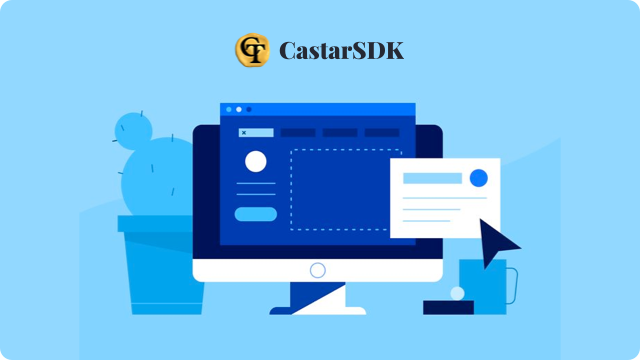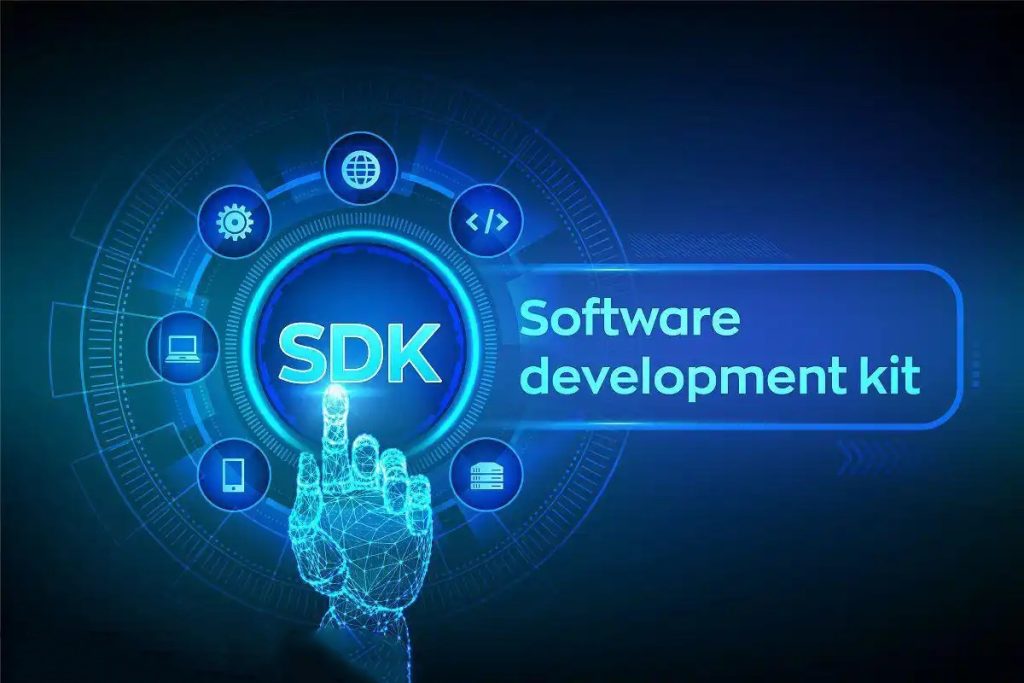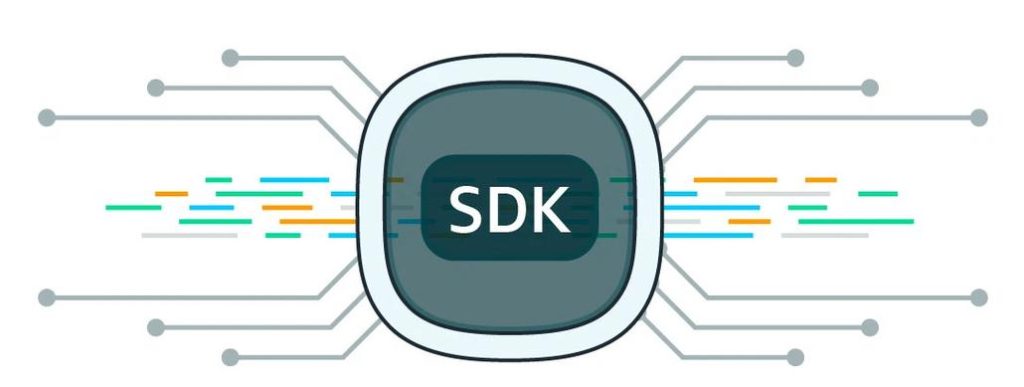

SDK, known as the “Software Development Kit”, stands for a collection of tools, libraries, documentation, and code samples that developers apply to create applications for a specific platform or framework, resonating with developers’ shouts for a quicker reach and connection to users. It is an innovative tool for developers to boost their efficiency of software development by means of its simple integration and core features, such as payment, map services and data analysis. Getting rid of the requirements for compiling codes from zero, developers reap doubled results with minimized investment.
Components of an SDK
An SDK typically includes:
- APIs (Application Programming Interfaces) – Functions and protocols for interacting with the platform.
- Libraries & Frameworks – Pre-written code that helps developers build software faster.
- Development Tools – Compilers, debuggers, profilers, and other utilities.
- Documentation – Guides and references for using the SDK effectively.
- Sample Code – Example projects to help developers get started.
- Emulators or Simulators – Virtual environments for testing applications.
Examples of SDKs
- Android SDK – Used for developing Android apps.
- iOS SDK – Used for developing iPhone and iPad apps.
- Java SDK (JDK) – Required for Java development.
- AWS SDK – Helps developers integrate AWS services into their applications.
Purposes of SDK

·Integration of functions: SDK is usually used as the method to simplify the integration of specific functions, for example, payment, maps, advertisements, analysis and so on.
·Platform-crossed development: It offers support from designated platforms, for instance, Android, iOS, and Web Development.
·Hardware Interface: The SDK given by device manufacturers aids developers in controlling and viewing data from hardware devices, such as cameras and sensors.
·Service expansion: Aiming at extending the features of certain services, just like third-party push services and voice recognition services.
Developers’ preferred USK

1. Google Maps SDK
With the global cover of map data and accuracy of location, it provides map display, route design, geo-fencing, real time traffic monitoring and other locating functions and is used in logistics, navigation applications and shared travelling services.
2. Castar SDK
Widely used in games, tools, and other apps calling for monetization, CastarSDK assists developers with app monetization with its simple integration and supports from varied platforms, thereby maximizing app profitability and maintaining user immersion while remaining unobtrusive with its powerful monetizing functions.
3. OneSignal SDK
Working as the notification of messages and marketing push of mobile apps, the outstanding features of the free project supports sophisticated user grouping and user analysis, alongside offering platform-crossed notification push services supporting group push and tailored notification.
4. Firebase SDK
Running as “backend as a Service” (BaaS), it supports real-time database, cloud storage, authentication and cloud message push (FCM). The Firebase SDK is easy to accomplish real-time update and push in the quickly built back-end services or enhancement of app features.
5. Mixpanel SDK
Applied in the scenarios of optimization of products and market data analysis, this SDK tracks user activity and generates real-time analysis reports so as to explore and analyze users in depth with its easy and convenient integration.
6. Twilio SDK
Operated as the communication services, it offers voice, SMS, video call and real-time chat functions with its global reach for online customer service, notification services and real-time collaborative tools.
Conclusion
In a nutshell, SDK is a product catering to the developers’ demands for soaring user base balanced with the nature of apps along with a lucrative strategy empowering developers to draw financial insights from the competitive app market landscape. Putting SDK into use is a tactic not only adapting developers to the app market, but also push them to success in reaching their financial goals.
